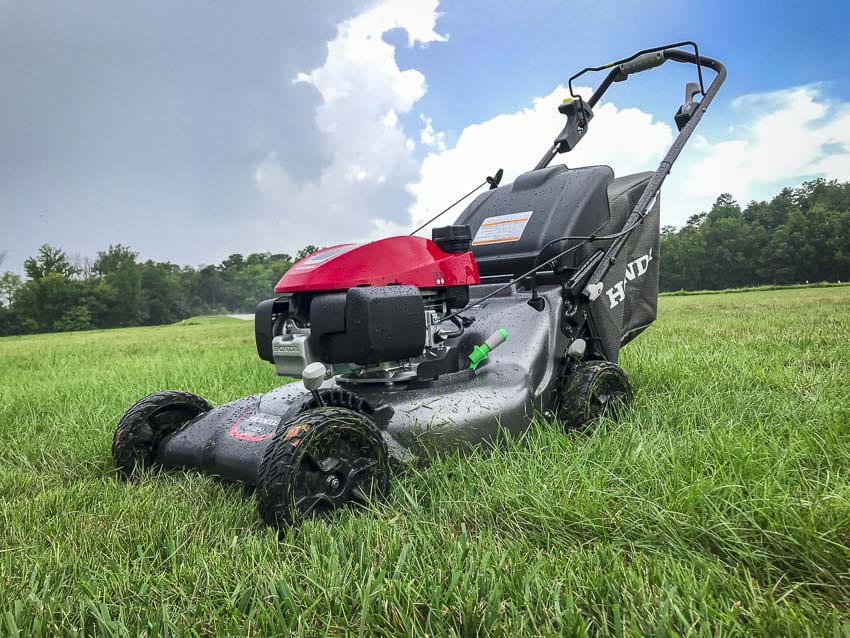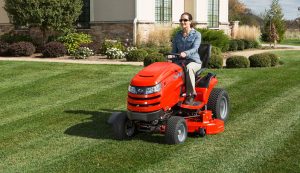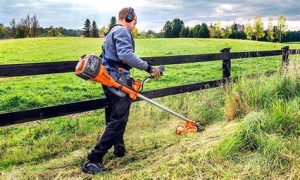Reasons Why Your Honda Lawnmower Won’t Start
When the engine won’t turn over, it’s time to start looking for anything that might be preventing power from reaching the starting motor.
A dead battery, loose or corroded wiring and electrical components, defective ignition switch, faulty safety switch, blown fuse, broken starting solenoid, or faulty starter motor are all potential causes of a Honda lawn mower’s inability to turn over or crank.
Keep yourself safe when working on your Honda lawn mower. Before working on the electrical system, it is necessary to disconnect the negative battery wire. The Honda owner’s handbook will provide you with important safety information.

Table of Contents
The Cause of Your Honda Lawnmower’s Non-Start
Your Honda’s Battery Is Dead or Faulty
A Honda mower engine requires more power than a poor battery can deliver. The battery will last longer if it is kept completely charged, which is particularly essential if you want to store the mower for a prolonged length of time.
Follow the guidelines in the article “5 Things That Are Draining the Life of Your Lawn Mower Battery” to check your battery.
Charging a Battery: The 12-volt battery must be charged using a battery charger. Put on goggles and rubber gloves to protect your eyes and skin from potential electrical current before proceeding. To charge the battery on your lawn mower, do the following:
- Get to the battery and the connectors. To get to the battery, you may need a screwdriver. Don’t take the battery out of its case.
- The positive wire should be plugged in first when connecting the charging cords. The plus sign cable, or the red cable, is this one.
- Connect the wire to the battery’s positive pole.
- Join the negative end of the cable to the battery’s negative post. This is the negative-sign cable, sometimes known as the black cable.
- Do not risk electrocution by touching anything that has not been coated with rubber.
- Alter the charger’s settings to get the required voltage and current. Most lawn mower batteries have 12 volts of power. More amperage means a quicker battery charge. Initiate with no more than two camps and no more than ten amps of power. It’s better to charge slowly.
A new battery should be installed if the old one is unable to maintain its charge. A replacement battery may be purchased from any local lawn mower shop, hardware store, or auto parts store.
Please remember to bring your used battery. You’ll probably have to pay a core fee if you don’t bring in your old battery.
Connections and Wires That Are Loose in Your Honda
The regular vibration of a Honda mower might cause the wiring and electrical components to come free. Check the connections and make sure everything is connected properly.
Check the parts for rust or corrosion that might have been caused by condensation. It’s important to get rid of corrosion since it may disrupt operations.
To begin cleaning the parts, disconnect the battery wires. Use a wire brush and a baking soda solution (two cups water to three heaping teaspoons of baking soda) to scrub away the rust.
If you are unable to clean the terminals or other components, you will need to replace them.
Your Honda Lawnmower Has a Blown Fuse
Your Honda’s electrical system is protected by a fuse in the event of a power spike or short. Make sure there is no blown fuse in your mower.
A blown fuse may be tested by measuring the resistance between the probes of a multimeter placed on the fuse’s prongs.
Your fuse is OK if the resistance measurement is close to 0. A blown fuse will show up as infinite resistance.
Always use a fuse of the same amperage rating to replace a blown one. Bring your Honda to a service shop or dealership specializing in lawn equipment if you keep having fuses blow.
Your Honda Lawnmower Has a Defective Ignition Switch.
If you turn the key in the ignition and nothing occurs, the problem may lie in the switch. It won’t be possible to start your Honda.
whether you suspect the ignition switch is broken, you may test it with a multimeter to see whether there is any continuity. To accomplish this, locate the B for Battery and S for Starter Solenoid markings on the prongs.
The key must be inserted and turned to the “on” position. Connect one probe to the B prong and the second probe to the S prong of the multimeter when the multimeter is set to the resistance measurement mode.
The resistance of a high-quality key switch for the ignition should be close to zero. An infinite resistance reading indicates that the ignition key switch has to be changed.
Your Honda Lawnmower Has a Defective Safety Switch.
A safety feature called “operator presence control” has been installed in your Honda. A faulty safety switch might prevent your Honda from starting.
Use a multimeter to make sure your switch works. The safety switch may be temporarily disabled during troubleshooting to help pinpoint a faulty unit.
Never cut grass without first flipping the mower’s safety switch. Never use a lawnmower with the safety switch removed. You never know when you may need the protection that a safety switch provides.
If your Honda lawnmower won’t start, check the solenoid.
When activated, your Honda’s electromagnetic starting solenoid sends a signal to the starter motor to begin cranking the engine.
When the starting solenoid’s spring loses its strength or the copper plate corrodes, the device might malfunction. The solenoid might fail for a variety of reasons, including a weak starting, faulty battery, or poor ground.
A fully charged battery is required prior to testing the starting solenoid. Carry on testing the solenoid using the methods detailed in “How to Tell Your Lawn Mower Solenoid is Bad” for diagnosing a faulty starting solenoid.
Honda Lawnmower Won’t Start Due to a Faulty Starter Motor.
If your Honda won’t start and you’ve already checked the battery, cables, wiring, ground, and starting solenoid, then it’s time to check the starter. The starter may be taken out and examined in detail.
Instead of merely buying an expensive new starting for your Honda mower, I suggest having your local repair business that specializes in starter and alternator repairs check it out and maybe rebuild it.
Problems with Honda Lawn Mowers and How to Fix Them
Lawn maintenance is only one of the costs of being a homeowner. To aid in maintaining your lawn, you’ve purchased a Honda mower.
Lawn mowers of any make are prone to malfunction and cause problems as they become older.
Mower issues are inevitable, even though proper maintenance might put off expensive fixes for longer. Here is a quick reference guide I made to assist you figure out what parts of your Honda mower might be malfunctioning. Problems with Honda Lawn Mowers and How to Fix Them






